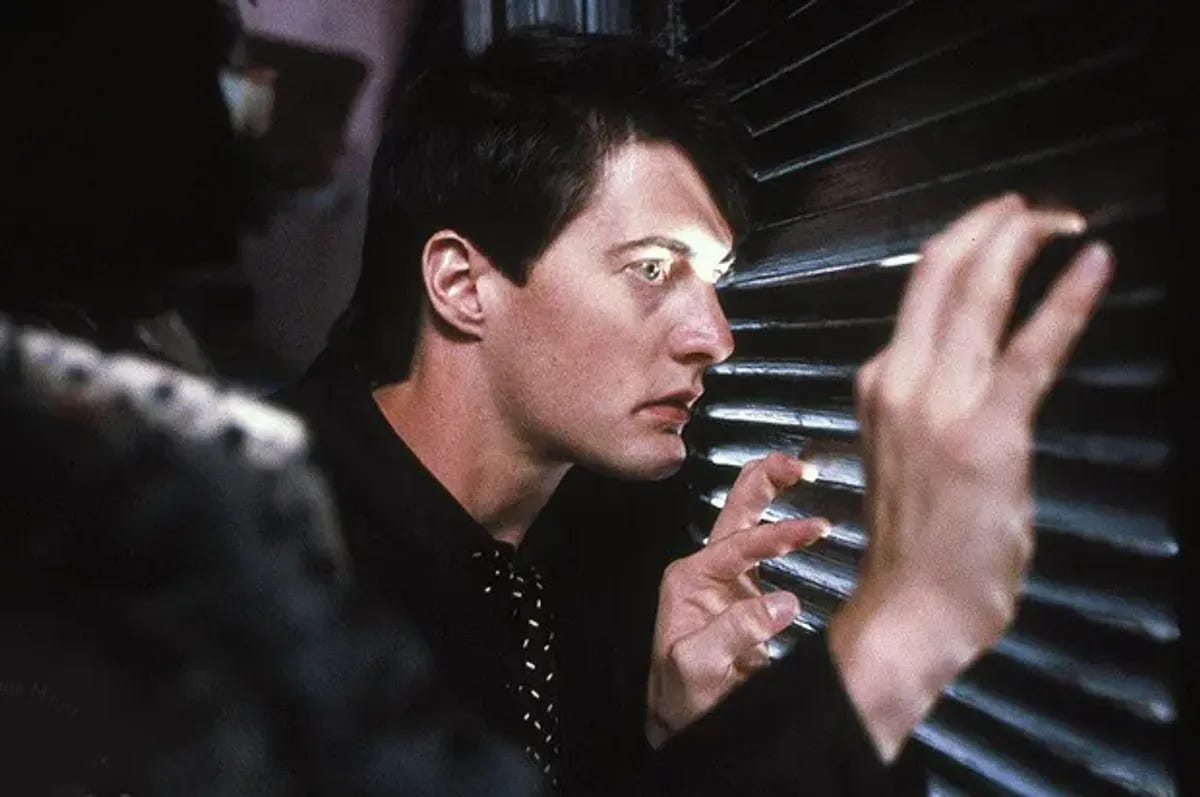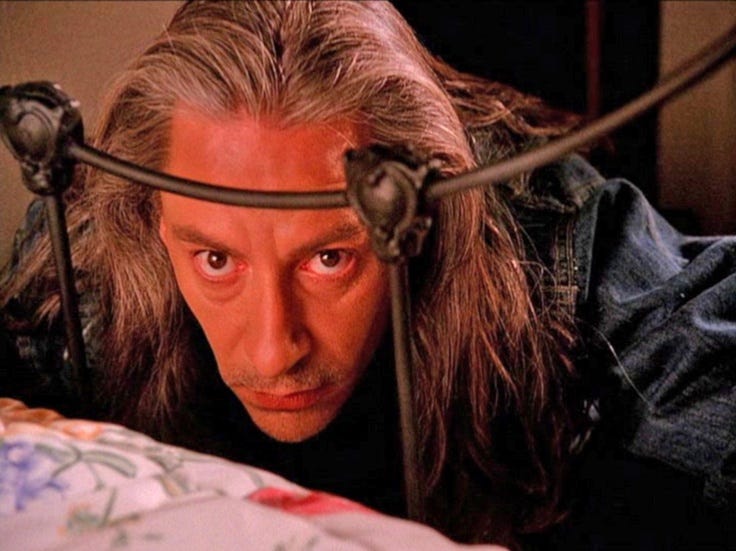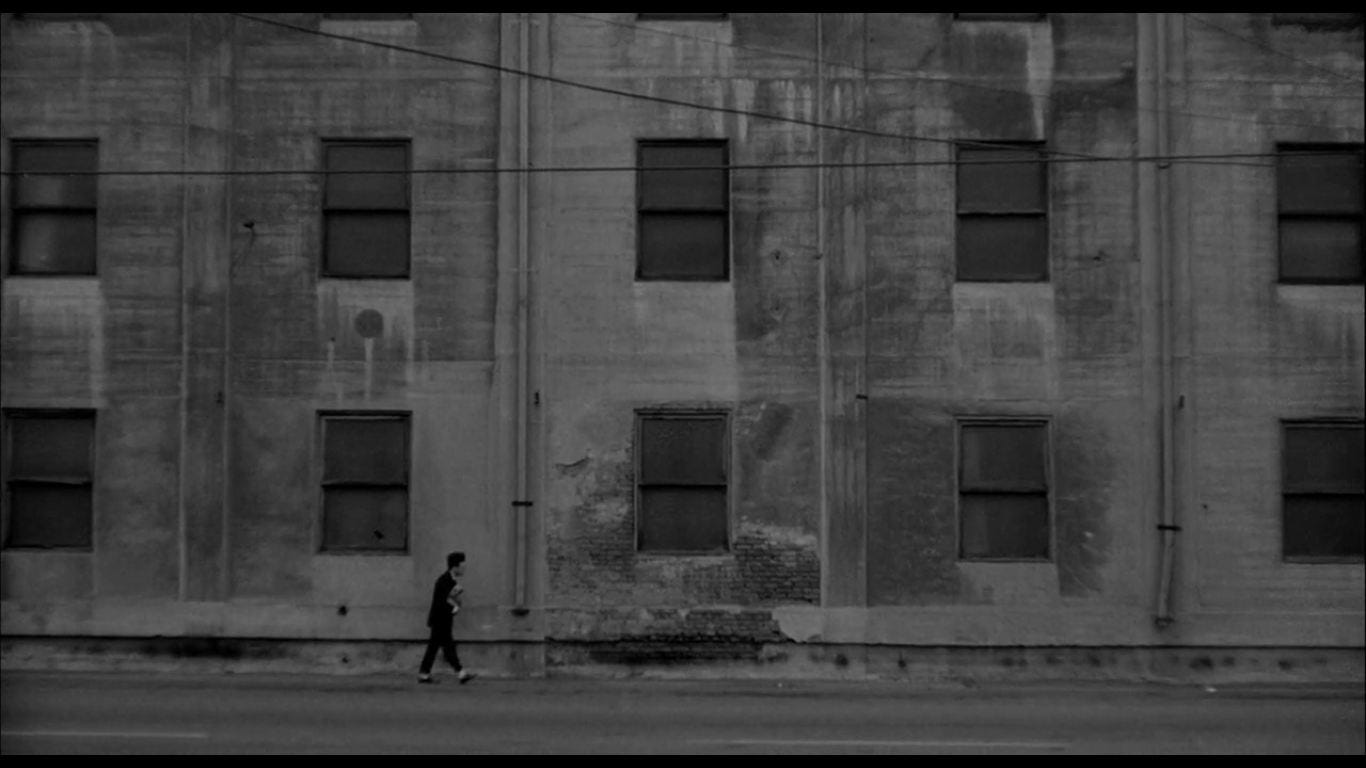Mini Book Review: Jeff Johnson’s “Pervert in the Pulpit: Morality in the Works of David Lynch”
Lynch and his Calvinist sensibilities
David Lynch is often perceived as the “King of Weird,” but are his dark and brooding surrealistic aesthetics all that transgressive? Johnson’s book posits that Lynch’s hagiographical position and individual exaltation in the media and the masses do a disservice to viewing the auteur behind such cult classics. For Johnson, Lynch is
patriotic, puritanical, and nostalgic for a mythological Reagan-era past.
Simply put, it doesn’t take a genius to see Lynch’s real and ostensibly serious and sentimental view of a middle-class America in fifties limbo that is constantly pitted against an exaggerated personified evil (whether BOB from Twin Peaks, the Mystery Man from the Lost Highway, or Frank Booth from Blue Velvet).
“[Lynch’s films] reinforce a wistful benevolence, projected a vision of a nostalgic America that existed only in a Reaganesque, bright-eyed Eagle Scout’s good-deed diary. In hindsight (which is, after all, twenty-twenty), his films, instead of being iconoclastic, read like sermons: the good people, the elect, are beautiful, wholesome, well-balanced, with a penchant for fifties’ fashion and family values, while the bad people, ugly and carbuncular, deal drugs, engage in promiscuous sex, produce pornography and mock in blatant acts of blasphemy the virtues of the American hearth and Heartland.”1

If we are to view Lynch as a postmodern-day surrealist we have to concede to the fact that the technique is fecund with the possibilities to implicate the individual idiosyncrasies of the viewer through their interiorized interpretations of Lynch’s surrealist framing of defamiliarized symbols— but also an exteriorizing of the curated nonlinear structures he connects to create a syncretic metaphysical vision— a vision that puts the director in peril of being seen for his innermost ideologically conservative instincts. His voyeuristic lens becomes a portal—like peering through closet shutters—into his desires, driven by a perverse impulse to implant these desires within his audience. Throughout his work, sensual montages serve as fragments requiring careful arrangement, inviting viewers to reassemble decontextualized pieces. Johnson likens these abstract moments to ornaments on a dogmatic Christmas tree:
“Without his unwavering faith in his own moral framework—the Christmas tree, as it were, on which he hangs his bizarre baubles—his film sense would collapse into trite, flip entertainment.”2
The moral scaffolding still exists, and mere formal analysis and laudation of technical prowess neglect the reality of the director's seriously antiquated polemics.
“Lynch is a moral reductionist whose Zoroastrian dualism undermines his complexity, no matter how his clever cinematic pyrotechnics try to elevate the basic context of his films.”3
Can we seriously say that Twin Peaks is transgressive when it was the most popular show in Midwestern middle-class America?
Johnson claims Lynch spews anti-rationalist visions as a pathologically nostalgic preacher would, exalting intuition and raving cautionary tales of the indelible sin of the dispossessed. Like a Puritan, he points to the evil forces within the wilderness and warns of the imminent corruption of the naïve and pure. Such corruption is inevitable in so much as Lynch’s characters are meant to suffer, they must submerge to transcend either to transform into bestial deplorable or are lucky enough to be the elected few that are ultimately destined for redemption.
Like a Romanticist, the Lynchian lens sees the urban landscape in Eraserhead as bombed tenements and oozing, grinding industrial decay. Meanwhile, the small town of Twin Peaks is a populous of virtuous business owners living in fear of the corruption of the naïve often drug-ridden youth in need of the assistance of kind-hearted federal agents fueled on damn good coffee.

Johnson’s analysis prompts us to reconsider Lynch's reputation as a subversive filmmaker. Rather than challenging cultural norms, Lynch's work often reinforces an infantile perception of America. Beneath the surrealism and grotesqueries, there is a longing for a past steeped in conservative values—a world of clear distinctions between good and evil, with virtuous, wholesome characters set against monolithic depravity and sin. This underlying framework, Johnson suggests, aligns Lynch more closely with a Reagan-era moral absolutism than with iconoclastic provocateurs. Johnson’s critique doesn’t aim to upset the order of great American mythmakers but sheds light on Lynch’s not-so-subconscious lineage to Puritanical thought. In this light, Lynch emerges not as a radical visionary but as a director whose unsettling images and dreamscapes ultimately reaffirm a traditional worldview, inviting audiences not to question societal norms, but to embrace a mythologized version of middle-American virtue.
pg. 9
pg. 36
Ibid.




